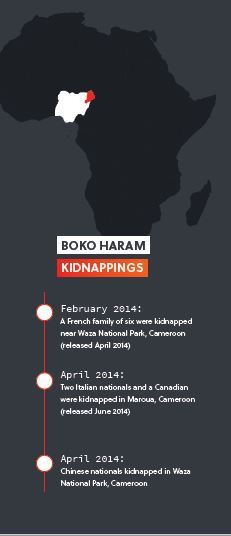No-Go Area: The Prospects for the Oil Industry in Nigeria’s Borno State
The Nigerian National Petroleum Company (NNPC) has been eager to re-enter Nigeria’s restive, yet potentially oil-rich, Borno State for some time. In May 2017, the state-owned oil firm announced that it would be resuming exploration operations in the Lake Chad Basin area of Borno State within a period of six months, following the military’s assurance of improved security, relative peace and the degrading of Boko Haram sects in the northeast sub-region. To that end, in July last year, the NNPC deployed a team of geological surveyors to engage in early oil exploration in Borno State.

Yet, despite claims of improved security in the region, within days of their arrival the geological team, together with members of the Civilian Joint Task Force and military personnel, were ambushed by Boko Haram militants near the village of Jibi, in the Magumeri Local Government Area. Jibi is located approximately 50km from Borno’s state capital, and common target in Boko Haram suicide bombings, Maiduguri. Following the attack, the militants kidnapped ten members of the geological team. The Nigerian military was quick to launch a rescue operation, but despite securing the release of the captured surveyors, the operation came at a heavy toll, with at least 30 people, including civilians and soldiers, killed in an ensuing gun battle with the militants. Furthermore, in a subsequent video released by the Islamic State-aligned Boko Haram faction, it was clear that the geologists offered valuable collateral for Boko Haram to make demands on the Nigerian government. It is highly likely that the group will view all commercial personnel, particularly those in the extractive sector, as attractive pawns for negotiations with the government. Equally, the increasingly cash-strapped group will find high-profile kidnappings lucrative; particularly should opportunities for kidnappings increase with the return of business personnel to the area.
In the wake of the costly exploration mission, on 1 March 2018, the NNPC announced that it would delay exploration plans in Borno in favour of other northern states. However, the lure of an estimated 100 billion cubic metres in oil deposits in Borno remains at the forefront of the NNPC’s agenda. Despite stating the firm will prioritise efforts in Benue, Nasarawa, Niger and Sokoto states, new efforts in Borno are expected in the near future. These efforts are unlikely to be tolerated by Boko Haram and we are likely to see pushback from the group against oil projects, including targeting oil contractors in kidnappings.
The targeting of an emergent oil sector, specifically through the kidnapping of personnel, could offer the group a welcome avenue to rebound.
Nigeria’s Niger Delta region offers a preview of the potential consequences of oil prospects overlapping with militant campaigns, particularly if oil finds fail to deliver inclusive, rapid, yet sustainable economic development in the north. Boko Haram presents a likely agitator for resource control and the July 2017 kidnapping demonstrates an already available tactic to disrupt Borno’s nascent oil sector. While Boko Haram may be on the back-foot territorially due to recent military successes, the group is exceedingly resilient. The targeting of an emergent oil sector, specifically through the kidnapping of personnel, could offer the group a welcome avenue to rebound.
